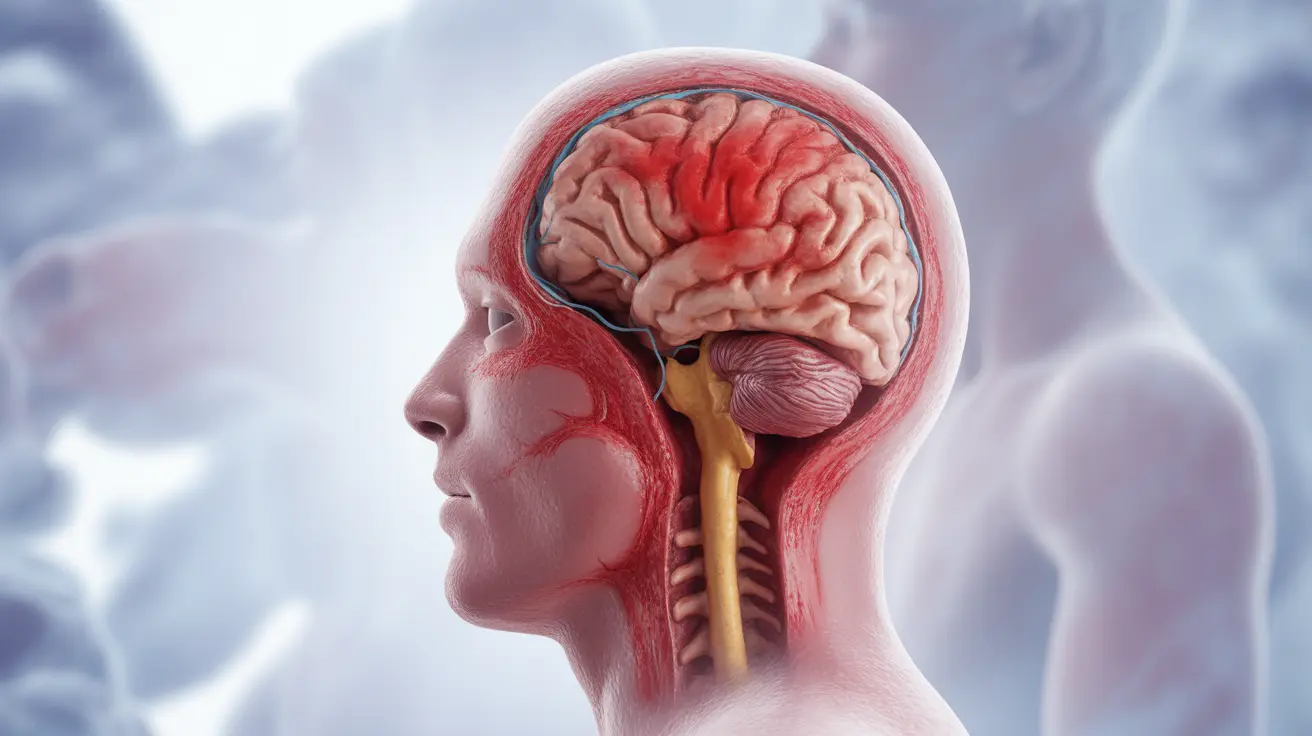Fungal meningitis is a serious infection that causes inflammation of the protective membranes covering the brain and spinal cord. While less common than bacterial or viral meningitis, this fungal infection can be life-threatening if not diagnosed and treated promptly. Understanding its symptoms, risk factors, and treatment options is crucial for better outcomes.
This comprehensive guide explores the key aspects of fungal meningitis, including how to recognize its symptoms, who faces higher risks, and what treatment approaches are most effective. Whether you're concerned about your own health or caring for someone at risk, this information will help you make informed decisions about prevention and care.
Common Symptoms and Their Progression
The symptoms of fungal meningitis typically develop more gradually than other forms of meningitis, often appearing over several days to weeks. Early recognition of these signs is crucial for timely treatment:
- Severe headache that worsens over time
- Neck stiffness and pain
- Fever and chills
- Sensitivity to light
- Nausea and vomiting
- Mental status changes
- Confusion or altered consciousness
Unlike bacterial meningitis, which can develop within hours, fungal meningitis symptoms may progress more subtly, making early detection challenging. Some patients might also experience:
- Changes in balance or coordination
- Unusual fatigue
- Vision problems
- Personality changes
Risk Factors and Vulnerable Populations
Certain individuals face a higher risk of developing fungal meningitis due to various factors:
Compromised Immune System
People with weakened immune systems are particularly vulnerable, including:
- HIV/AIDS patients
- Cancer patients undergoing chemotherapy
- Organ transplant recipients on immunosuppressive medications
- Individuals with autoimmune conditions
Environmental Exposure
Exposure to certain environmental conditions can increase risk, particularly in areas with:
- High concentrations of bird or bat droppings
- Contaminated soil
- Certain types of moss or decomposing plants
Diagnosis and Testing Procedures
Accurate diagnosis requires several specialized tests and procedures:
- Spinal fluid analysis through lumbar puncture
- Blood tests for fungal antigens
- Imaging studies (MRI or CT scan)
- Culture tests to identify specific fungal species
Treatment Approaches
Treatment for fungal meningitis typically involves:
Antifungal Medications
Long-term antifungal therapy is usually necessary, often continuing for several weeks or months. Common medications include:
- Amphotericin B
- Fluconazole
- Other targeted antifungal drugs based on the specific fungal species
Supportive Care
Additional treatment measures may include:
- IV fluids for hydration
- Pain management
- Regular monitoring of brain and organ function
- Management of potential complications
Prevention Strategies
While complete prevention isn't always possible, certain measures can reduce risk:
- Maintaining a strong immune system through proper nutrition
- Avoiding high-risk environments when immunocompromised
- Following prescribed preventive medications for those at risk
- Regular health monitoring for vulnerable individuals
Frequently Asked Questions
What are the common symptoms of fungal meningitis and how do they develop over time?
Fungal meningitis symptoms typically develop gradually over days or weeks, including severe headache, neck stiffness, fever, sensitivity to light, and mental status changes. Unlike bacterial meningitis, the onset is usually slower and more subtle.
Who is at higher risk of developing fungal meningitis and why?
People with compromised immune systems face the highest risk, including those with HIV/AIDS, cancer patients, organ transplant recipients, and individuals on immunosuppressive medications. Their weakened immune response makes them more susceptible to fungal infections.
How is fungal meningitis diagnosed and what tests are used?
Diagnosis involves multiple tests, including spinal fluid analysis through lumbar puncture, blood tests for fungal antigens, imaging studies (MRI or CT scan), and culture tests to identify the specific fungal species causing the infection.
What treatments are available for fungal meningitis and how long does recovery usually take?
Treatment primarily involves long-term antifungal medications, often administered for weeks or months. Recovery time varies depending on the patient's immune status and the severity of infection, but typically requires several weeks to months of treatment.
How can fungal meningitis be prevented, especially in people with weakened immune systems?
Prevention strategies include maintaining good immune health through proper nutrition, avoiding high-risk environments, following prescribed preventive medications when recommended, and regular health monitoring for those at increased risk.




